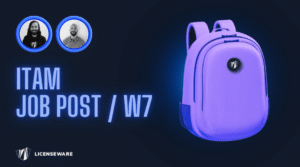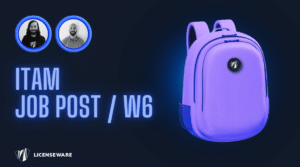A New Deal for DC: GSA and Oracle Ink Landmark “Whole-of-Government” Agreement

The US General Services Administration (GSA) has brokered a landmark, five-year “whole-of-government” agreement with Oracle, fundamentally changing how the federal government buys the tech giant’s products and services.¹ This first-of-its-kind deal for Oracle establishes a single, comprehensive procurement vehicle that consolidates the immense buying power of the entire US government. It aims to simplify purchasing, generate significant cost savings, and create a streamlined path for federal agencies to migrate from their sprawling on-premises estates to Oracle Cloud Infrastructure (OCI).¹
For decades, federal agencies have navigated a complex and often adversarial relationship with Oracle. The vendor is renowned for its aggressive sales tactics, intricate licensing rules, and challenging audits, which have historically forced individual agencies to negotiate their own, often less favorable, contracts. This fragmented approach meant the government could not fully leverage its status as one of Oracle’s largest customers in the world.
This new agreement, part of the GSA’s broader “OneGov” initiative, seeks to tame this complexity.¹ By creating a single contract open to all federal agencies—as well as authorized state, local, and tribal governments—the GSA has established a framework for more predictable and cost-effective Oracle spending.¹
What’s Inside the Landmark Deal?
The agreement is designed to be a one-stop shop for federal Oracle needs, covering the vendor’s most critical products and services. The core components include:
- Discounted Software and Support: The agreement establishes pre-negotiated, volume-based discounts for new software licenses and support for existing on-premises software.² As a promotional kickoff, Oracle is offering a 75% discount on license-based technology for a limited time.³
- Streamlined Cloud Purchasing: The contract provides a clear and simplified path for agencies to procure OCI services, putting Oracle’s cloud offerings on a level playing field with competitors who already had similar government-wide agreements.¹
- Predictable Costs and Price Caps: Oracle has agreed to cap price increases for the duration of the five-year agreement, giving agencies much-needed budget predictability.¹
- Elimination of Egress Fees: In a significant pro-competitive move, the deal eliminates data egress fees, removing a major financial barrier for agencies that may want to move data out of OCI to another provider in a multi-cloud strategy.³
- Cloud Migration Incentives: The agreement includes “white-glove migration services” and support credits explicitly designed to help agencies modernize and accelerate their move from legacy on-premises systems to OCI.²
Safra Catz, CEO of Oracle, stated, “We remain steadfast in our commitment to the U.S. government and are thrilled to work with the GSA to help every department and agency modernize their technology and gain the benefits of Oracle Cloud and AI.”²
The Strategic Push to Oracle Cloud
While the deal covers on-premises software, its strategic core is unmistakably focused on driving adoption of Oracle Cloud Infrastructure. The US government represents a massive footprint of Oracle database and application workloads, most of which still reside in on-premises data centers. Migrating this installed base to the cloud is a top priority for Oracle as it competes fiercely with Amazon Web Services, Microsoft Azure, and Google Cloud for the lucrative federal market.
This agreement gives Oracle a powerful, pre-approved channel to pursue that goal. By making the procurement process for OCI as simple as possible and bundling migration incentives, Oracle and the GSA are greasing the wheels for a massive technological shift. The inclusion of Oracle Database 23ai, which integrates artificial intelligence capabilities, is positioned as a key benefit for agencies looking to modernize not just their infrastructure but also their data analytics and application development.²
A Win for GSA, But Lock-In Looms
This agreement is a significant victory for the GSA and its mission to centralize federal IT procurement. “Through OneGov, GSA is reshaping the federal marketplace—driving down software costs and leveraging the full buying power of the government to secure the best possible value,” said Federal Acquisition Service Commissioner Josh Gruenbaum.¹
However, while the deal promises simplicity and savings, it also raises valid concerns about vendor lock-in. By making it easier and more attractive to buy Oracle, the agreement could inadvertently discourage agencies from exploring alternative solutions that might be a better technical or financial fit. The true value of the promised discounts will depend on the final negotiated prices, as the published rates are merely a “not-to-exceed” ceiling.
Ultimately, this landmark agreement rewrites the rules of engagement between the US government and one of its most critical technology vendors. For Oracle, it secures its vast federal footprint and provides an unprecedented pipeline to fuel its cloud ambitions. For government agencies, it offers a welcome escape from procurement complexity and the promise of cost savings. The long-term impact will depend on how agencies leverage this new power, but for the next five years, the path for federal Oracle spending has been clearly defined.
Sources
- The Register (July 8, 2025) https://www.theregister.com/2025/07/08/gsa_oracle_deal/
- Intelligence Community News (July 8, 2025) https://intelligencecommunitynews.com/gsa-partners-with-oracle-to-offer-discount/
- Nextgov/FCW (July 7, 2025) https://www.nextgov.com/acquisition/2025/07/gsa-announces-new-oracle-onegov-agreement/398180/










